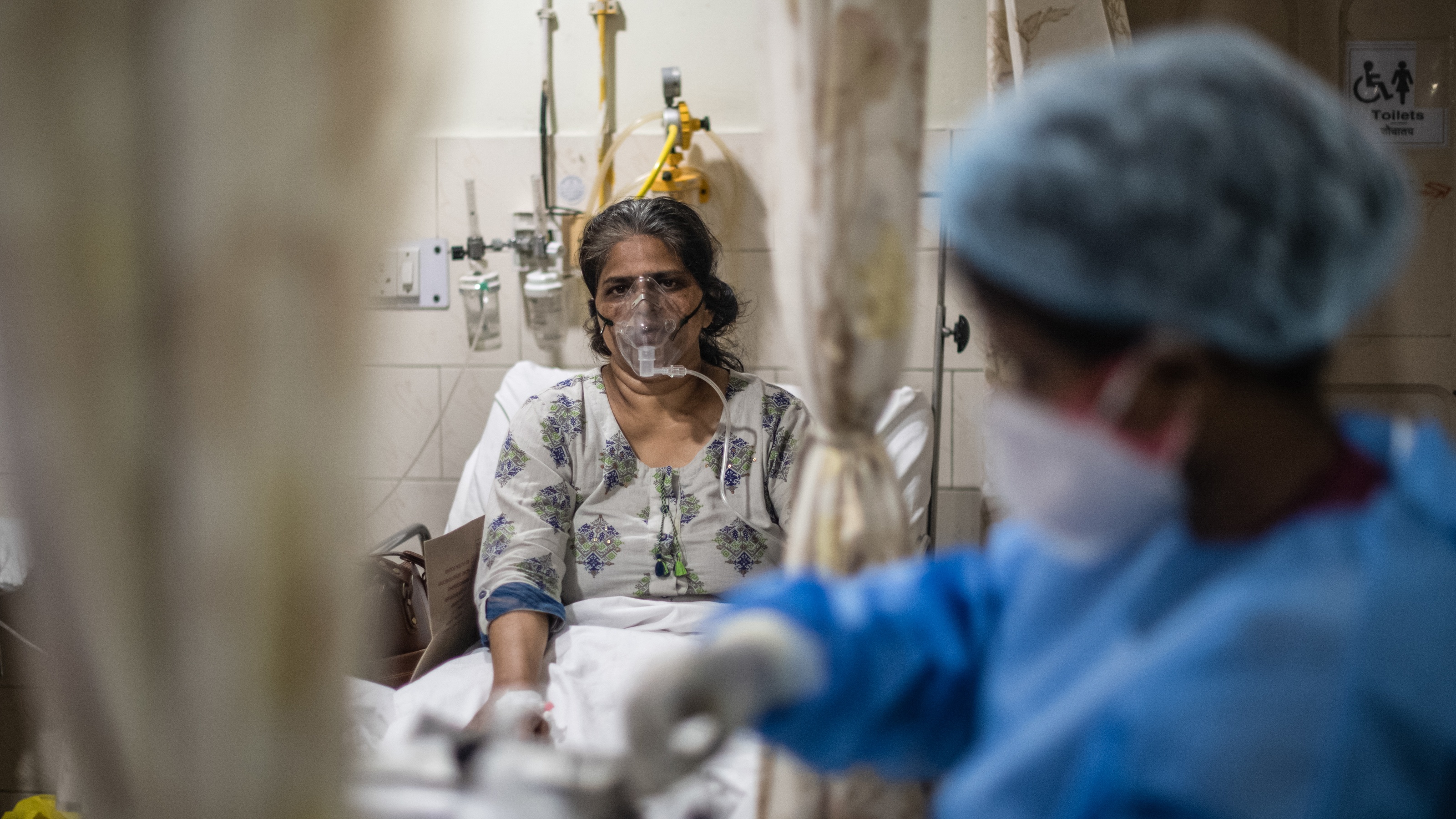Concern over clusters of India ‘double mutant’ Covid variant in the UK
Leaked emails reveal PHE considers risk from highly infectious strain to be ‘high’

A free daily email with the biggest news stories of the day – and the best features from TheWeek.com
You are now subscribed
Your newsletter sign-up was successful
The coronavirus mutation that has wreaked havoc across India in a deadly second wave has been declared a “variant of concern” by Public Health England (PHE).
Leaked PHE emails seen by The Guardian reveal that “clusters” of the mutation have been discovered across England, “including in care homes”, prompting “growing fears” about the speed at which it is “spreading in communities”.
The leak revealed that “eight clusters of Indian variant B16172 have been identified”, the paper adds, including outbreaks linked to “secondary schools and religious gatherings, with evidence of community transmission in some of the clusters”.
The Week
Escape your echo chamber. Get the facts behind the news, plus analysis from multiple perspectives.

Sign up for The Week's Free Newsletters
From our morning news briefing to a weekly Good News Newsletter, get the best of The Week delivered directly to your inbox.
From our morning news briefing to a weekly Good News Newsletter, get the best of The Week delivered directly to your inbox.
Any outbreaks of the “double mutant” variant so far have been “largely linked to travel” with “cases remaining relatively low”, Sky News reports. Designating it a variant of concern will “see an escalation in response, including the use of surge testing”, the broadcaster adds.
The variant appears to spread more quickly than other mutations, with scientists believing “it is at least as transmissible as the variant detected in Kent last year”, the BBC says. However, a source told the broadcaster that there is no evidence that it is resistant to the vaccines currently in use in the UK.
Jeff Barrett, director of the Wellcome Sanger Institute Covid-19 Genomics Initiative, told BBC Radio 4’s Today programme the cases of the India variant in Britain and around the world were “consistent with this one being more transmissible than older versions of the virus from last year”, Reuters reports.
Studies on the effectiveness of existing vaccines against the mutation so far “paint a relatively positive picture that the vaccines are going to continue to have efficacy”, he continued, adding: “Obviously for new variants like this one, we need to do additional experiments and really get the solid proof one way or the other about that.”
A free daily email with the biggest news stories of the day – and the best features from TheWeek.com
The variant is thought to have been behind a rapid spike in infections across India that pushed its healthcare system beyond breaking point and saw the country post record case numbers on consecutive days.
“It is tempting to conclude” that the arrival of the virus in the UK “marks the start of the rise of this Indian variant”, writes BBC health correspondent Nick Triggle. However, “there are some good reasons why we should not jump to that conclusion”.
The rapid rise has been linked to international travel out of India after it was placed on the “red list”, while “the vaccines appear to work just as well against this variant as the dominant virus circulating in the UK”, he says.
“It will only be a couple of weeks before we know for sure” how its arrival will impact the UK, he adds. However, “the message is clear – this needs to be taken seriously, but there is no need to panic”.
Joe Evans is the world news editor at TheWeek.co.uk. He joined the team in 2019 and held roles including deputy news editor and acting news editor before moving into his current position in early 2021. He is a regular panellist on The Week Unwrapped podcast, discussing politics and foreign affairs.
Before joining The Week, he worked as a freelance journalist covering the UK and Ireland for German newspapers and magazines. A series of features on Brexit and the Irish border got him nominated for the Hostwriter Prize in 2019. Prior to settling down in London, he lived and worked in Cambodia, where he ran communications for a non-governmental organisation and worked as a journalist covering Southeast Asia. He has a master’s degree in journalism from City, University of London, and before that studied English Literature at the University of Manchester.